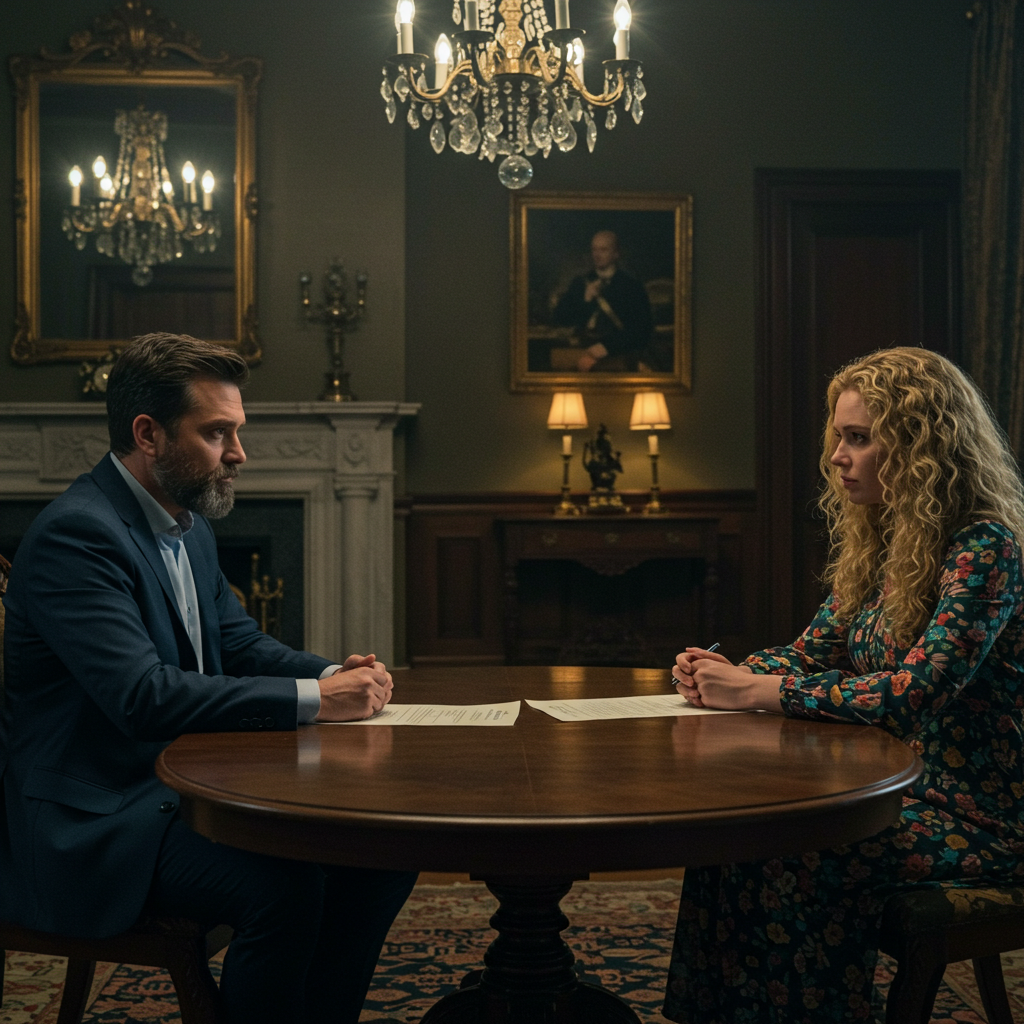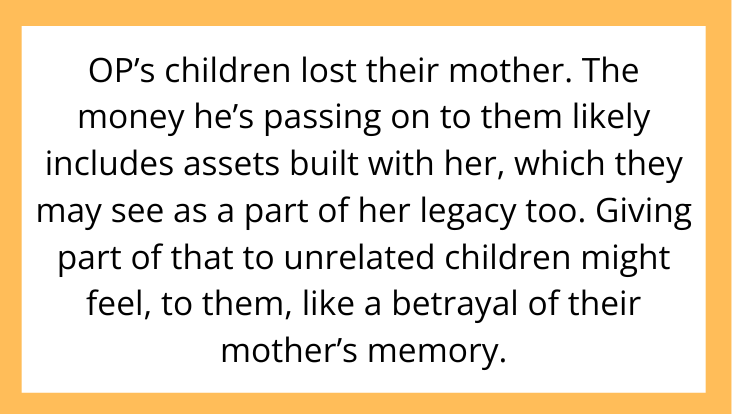Am I the Jerk for Telling My Fiancée Her Kids Won’t Be in My Will?
Blending families is rarely simple, especially when finances and future planning enter the picture. One Reddit user from the r/AITAH community recently asked a provocative question that sparked debate: Am I the jerk for telling my fiancée that I’m not including her kids in my will?
This post dives into the delicate dynamics of step-parenting, financial responsibility, and whether you owe inheritance to children who aren’t biologically yours—especially when marriage is on the horizon.
The Backstory: Widowed Father Meets Single Mom

The Original Poster (OP) is a 52-year-old widower with two adult children. Several years after the loss of his wife, he began dating a woman in her early 40s who has two teenage children from a previous marriage. They recently got engaged and are planning to marry in the next year.
Everything seemed fine—until they sat down to talk about wills and estate planning. OP explained that he plans to leave his estate, including a family home and several investment accounts, solely to his biological children. He emphasized that he wants to ensure what he and his late wife built together stays with their kids.
His fiancée, however, was shocked. She felt it was disrespectful not to include her children, especially since they would be living in the same home and would see OP as a father figure once married. Tensions rose, and she accused him of not seeing them as “real” family.
Now OP is wondering: Am I the jerk for drawing a financial line between my children and my fiancée’s kids?
Blended Families and Boundaries: Where Do You Draw the Line?
Marriage Doesn’t Automatically Equal Financial Unity

One of the central debates here is whether marriage means shared financial responsibility—not just for each other, but for each other’s children. In OP’s case, he made it clear that his financial legacy is tied to the life he built with his late wife and children.
This is a common concern in second marriages, particularly when both parties have children from previous relationships. While love can bind new families together, estate planning often reflects long-standing commitments.
Emotional Roles vs. Legal Realities
Even if OP becomes a stepfather in the emotional sense, that doesn’t legally bind him to provide an inheritance to his fiancée’s children. His adult kids had a long-standing relationship with both parents and likely rely on the inheritance as a continuation of that family legacy.
It’s also worth noting that OP isn’t refusing to support his fiancée’s kids while they live with him—he’s simply choosing not to legally pass on his wealth to them after death.
Is Fairness Always Equal?
A Common Misconception About Inheritance

Many people equate fairness with equal distribution. But fairness, especially in the context of blended families, often looks very different.
OP’s children lost their mother. The money he’s passing on to them likely includes assets built with her, which they may see as a part of her legacy too. Giving part of that to unrelated children might feel, to them, like a betrayal of their mother’s memory.
Meanwhile, OP’s fiancée believes fairness means all kids under their roof should be treated equally—financially, emotionally, and legally.
Both sides feel justified. But does that make OP a jerk?
The Role of Intent and Communication

What stands out in OP’s post is that he didn’t hide anything. He was upfront about his intentions before the marriage, giving his fiancée a chance to understand his values and priorities.
This transparency is crucial in any blended family. Conflicts often arise when assumptions are made, especially about inheritance and financial support.
By having the conversation early, OP ensured there was no deception. Whether his fiancée can accept his stance is a separate question—but clarity should never be punished.
Reddit Weighs In: Transparency Over Obligation

The r/AITAH community had a lot to say—and most sided with OP.
“You were honest. That’s not being a jerk—that’s being respectful.”
“Your wife built that estate with you. It belongs to your kids. Period.”
“If she wants her children protected financially, she should do the same on her end.”
Others acknowledged the emotional challenge of blending families:
“It’s a tough pill to swallow. But you can love your stepkids and still choose to protect your children’s inheritance.”
Some users suggested compromise—like setting up a separate fund for emergency use or including a life insurance policy for the fiancée’s children, separate from the core estate. These suggestions struck a middle ground between compassion and boundaries.
Final Thoughts: Protecting Legacy Isn’t Selfish

OP isn’t a villain for wanting to keep his late wife’s legacy intact. And he’s not a villain for being honest with his future spouse about what his estate plan looks like.
In fact, he’s doing something many people fail to do: having the hard conversations before problems explode.
Blended families face unique challenges, and inheritance is often a sore point. But setting expectations early—while being open to evolving them over time—is a sign of maturity and respect.



